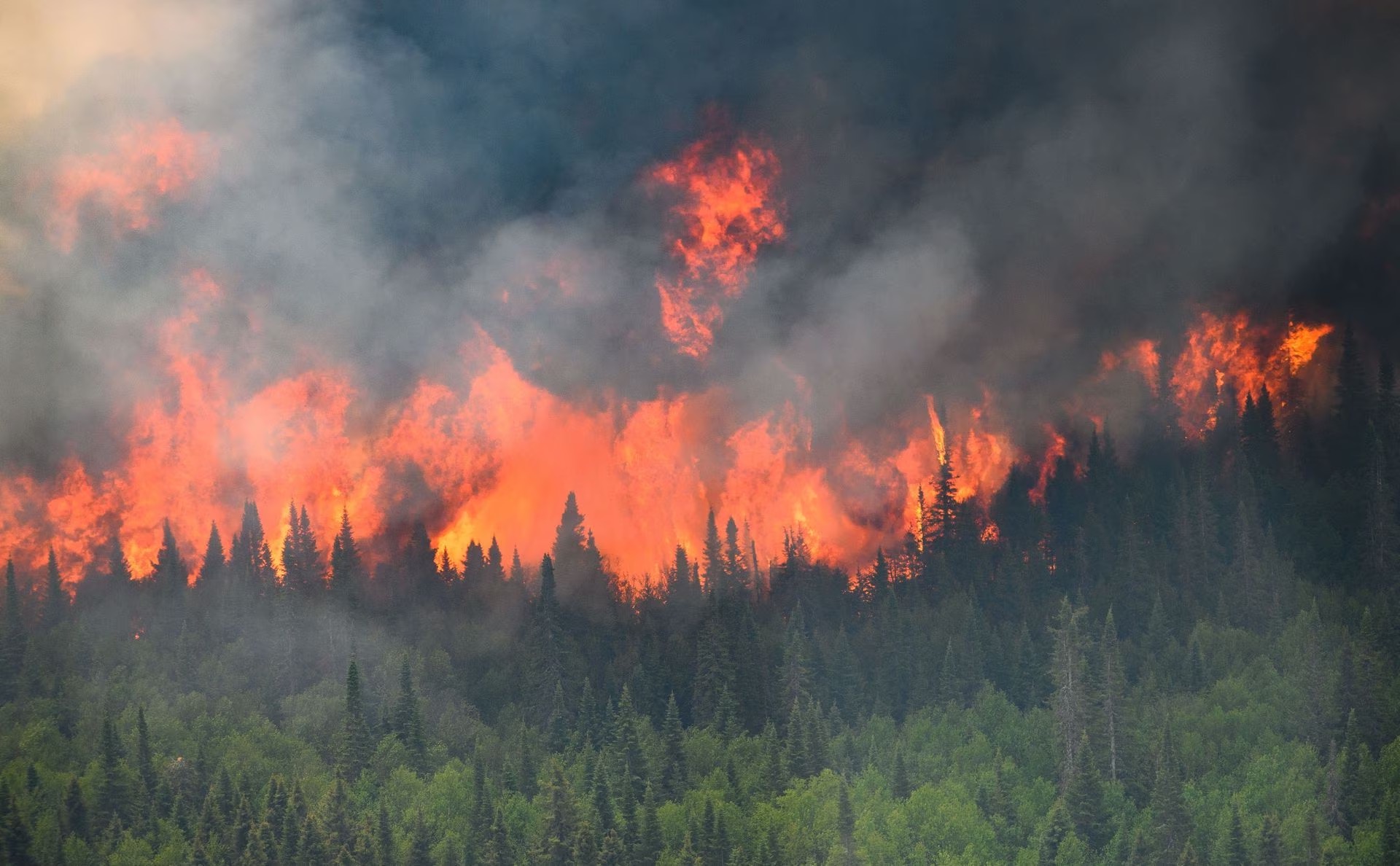As of its most recent update on Wednesday, the Canadian Interagency Forest Fire Center has recorded 3,025 wildfires since the beginning of 2023. The fires have scorched 8 million hectares of land across the country this year.
Canada is experiencing its most destructive wildfire season on record, as hundreds of blazes burning from coast to coast continue to send tremendous plumes of smoke into the atmosphere.
The smoke has been recorded by satellite images travelling to cities, such as Chicago, in the United States and some European countries, such as Spain and France.

Flames reach upwards along the edge of a wildfire as seen from a Canadian Forces helicopter surveying the area near Mistissini, Quebec, Canada, June 12, 2023. /Reuters
Flames reach upwards along the edge of a wildfire as seen from a Canadian Forces helicopter surveying the area near Mistissini, Quebec, Canada, June 12, 2023. /Reuters
A map updated daily by the Canadian Interagency Forest Fire Centre shows how widespread the wildfires have become. Eastern provinces like Quebec, Ontario and Nova Scotia have been hit particularly hard this year by large and at times uncontrollable blazes.
The Donnie Creek wildfire burning in northeastern British Columbia continues to grow, so far covering an area of over 5.7 million hectares which is larger than the size of Prince Edward Island, according to the B.C. Wildfire Service.
The Donnie Creek wildfire is easily the largest ever recorded in B.C. It is expected to burn through the fall and into winter. Because of its size, it will continue to burn underground in places, only to resurface next spring.
Wildfires burning through the country have released a record 160 million tonnes of carbon, the EU's Copernicus Atmospheric Monitoring Service said on Tuesday.
"The difference is eastern Canada fires driving this growth in the emissions more than just western Canada," said Copernicus senior scientist Mark Parrington. Emissions from just Alberta and British Columbia, he said, are far from setting any record.
The carbon emissions have surpassed those of 2014 at 140 million tonnes.
Canada's wildfire season typically peaks in late July or August, with emissions continuing to climb throughout the summer. But with the season occurring annually from May until October, devastation seen from the outset this year put the country almost immediately on track for its worst season in more than 30 years.
Out-of-control blazes have cropped up in nearly every corner of Canada and forced thousands of people to evacuate.
(With input from agencies)
(If you have specific expertise and want to contribute, or if you have a topic of interest that you'd like to share with us, please email us at nature@cgtn.com.)